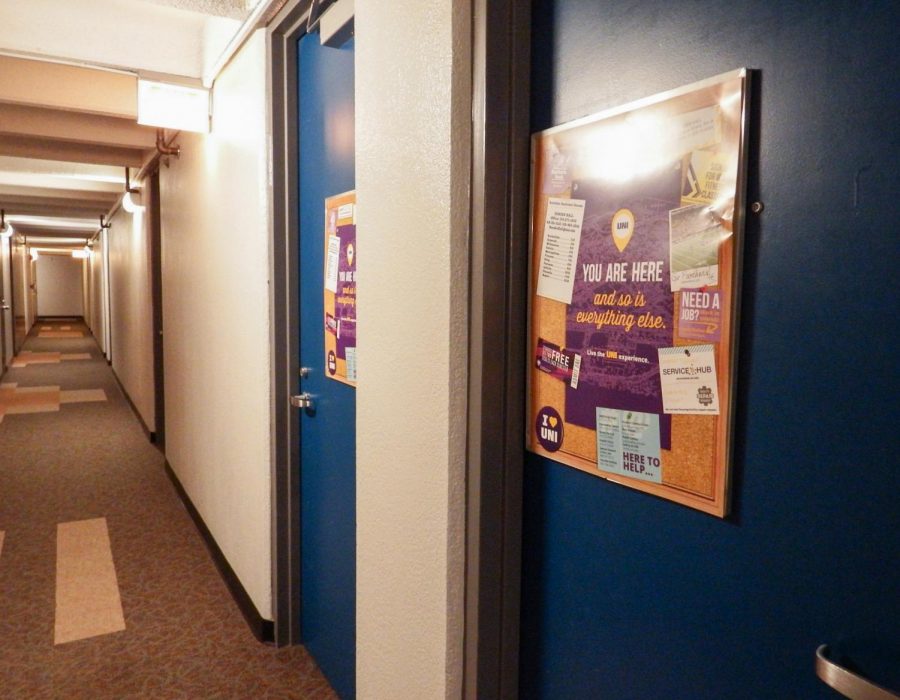Changes coming soon to campus living
Next school year, the Department of Residence will implement changes to the residence halls.
Nov 30, 2017
For students living on campus, the on-campus residence halls may start to look a little different next year thanks to some changes being implemented by the Department of Residence (DOR). Starting in the fall of 2018, second-year students will be able to live in Panther Village (PV).
This is in addition to expanding all-gender housing and an increase in the cost of some residence halls. Glenn Gray, assistant vice president and executive director of residence, was able to give more information on the changes that students can expect to see next academic year.
Gray said that second-year students will be permitted to live in Panther Village. This was made possible as “a result of the newly modernized and recently reopened Lawther Hall,” according to Gray.
In addition to sophomores being able to live there, PV will also provide all-gender housing along with other residence halls on campus. All-gender housing allows students living on campus to room with whomever they choose, despite the gender identity or legal sex of the other person.
All-gender housing will be available in Lawther Hall, which offers suites with both private and semi-private bathrooms, as well as PV, ROTH Apartments and Jennings Apartments, which all offer apartment-style living with private bathrooms and bedrooms in each unit, according to Gray. Gray has no serious concerns for the integration of all-gender housing into more residence halls.
“UNI has been providing open-gender housing for a couple of years now,” Gray said. “To date we have not experienced any problems.”
According to UNI’s residence hall page on the UNI website, any student living on campus is eligible for all-inclusive housing. However, the student must opt-into the all-gender housing within the housing and dining contract online.
“All-gender housing is also available within the traditional halls,” Gray said. “But the bathrooms within these communities remain gendered as male and female.”
According to Gray, the reasoning behind the expansion of all-gender housing is because it may help students who feel more comfortable with a friend, sibling or someone of the opposite sex or gender. Gray also said that all-gender housing is a good option for students who are still discovering their gender identity or are an ally of the LGBT* community.
“Although we have not had many students request all-gender housing, students may opt-in to this type of housing via our online room and roommate selection process,” Gray said. “Allowing students to select their own roommates and rooms online has reduced roommate conflicts and increased student satisfaction.”
Emily Harsch, the LGBT* student services coordinator, was able to give her insight on the subject of inclusive housing for the 2018-19 school year.
“The goal here is to really expand the options for students,” Harsch said. “Not just for transgender and LQBT* students, but for all students who are really trying to make decisions for themselves.”
Harsch says that she believes all-gender housing is a good move for UNI because it allows for more inclusive spaces, as well as allows students to make decisions that are best for them.
“Noehren Hall is the traditional residence hall that will allow for students to live with students regardless of gender,” Harsch said. “That’s the first time we’ve offered, within the contracting system, that option for students to self-select into inclusive spaces; that’s a huge step in the right direction.”
Baylee Milam, a sophomore family services major, also shared his perspective on inclusive housing and the changes the DOR will be making.
“I think it’s going to give students a lot more options to be who they are and to be willing to open up,” Milam said. “As it is right now, there are very little options for students of the LGBT* community to have housing and feel comfortable where they live.”
Milam said that he interacts daily with students who want and need inclusive housing.
Both Harsch and Milam said that they see no real concerns with having more inclusive housing on campus.
“Right now, we have the Quads and Lawther that has been operating just fine with co-ed housing,” Milam said. “It’s worked for many years, so there’s no real difference now than there was before.”
Harsch addressed the concern that sexual assault would increase due to inclusive housing.
“There hasn’t been a case, that I’ve heard of at least, where a transgender person committed assault against a cis-gendered person due to their identities,” Harsch said.
Harsch also said that the DOR is providing more training to resident assistants in order to create a safer environment for those living on campus.
As for housing and dining rates, Gray says that there is an expected increase in price of 1.8 percent for the 2018-19 school year. According to Gray, the increase is below the consumer price index and is the lowest increase in a decade. PV has not had a rate increase for the past two years.
According to Gray, the top priority continues to be keeping housing and dining rates low for students. Although living on campus can be expensive for many students, Gray says that living in the residence halls includes benefits exclusive to on-campus residents, such as creating a strong social network on campus and being involved in campus activities.
Gray said that the changes expected for the 2018-19 school year at UNI have been made to enhance student education and success and that the DOR is continuing to consider changes in order to meet the evolving needs of students.














